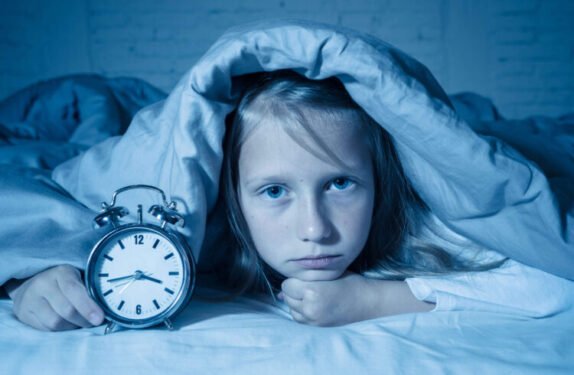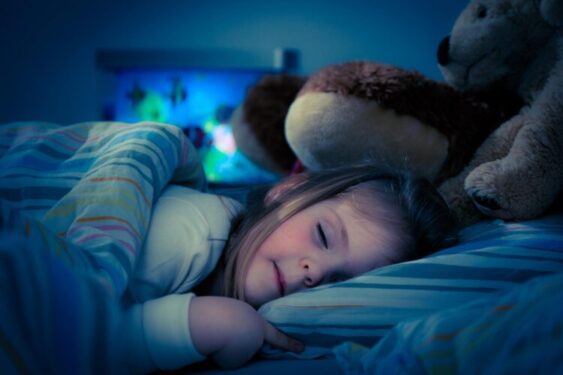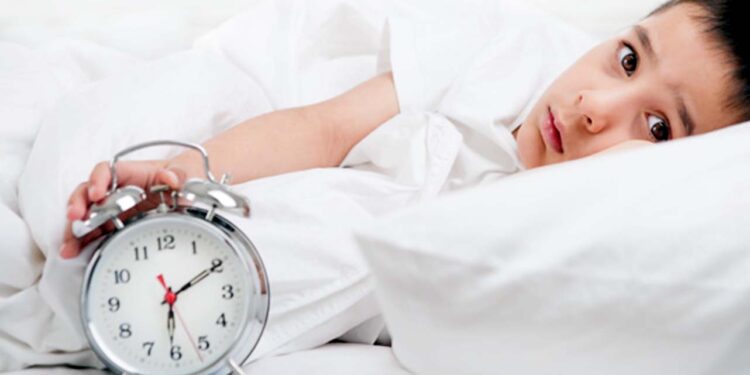Possible causes of sleep problems in children are, for example, insecurity, stress, anxiety, or problems at school. As a parent, it is important to quickly find the exact cause, because poor or insufficient sleep can make the child irritable.
A child who cannot sleep is often a disturbing phenomenon for a parent. After all, children should go through their young lives carefree and should have no reason to lie awake. However, it can happen that a child has difficulty falling asleep or cannot sleep deeply.
A child’s resistance can also decrease when he suffers from sleep deprivation. Which tips can help your child sleep better and which supplements or remedies are useful?
A child cannot sleep or sleep poorly
As a parent, it is often difficult to deal with your child’s sleeping problem. Sleeping problems in children usually indicate a physical or mental problem and can lead to unpleasant consequences in the long term. For example, the child’s resistance can decrease over time, making it less resistant to diseases and disorders. 
You, therefore, want to help your child get rid of his sleeping problem as soon as possible so that he can return to a normal sleeping pattern. After all, your child should be carefree and sleep long and deeply. It is therefore important to find the exact cause of your child’s sleeping problem.
Causes of sleep problems in children
Psychological
A child who has trouble sleeping often do not even know what the exact cause is. When you ask your child what’s wrong, you often come across answers like: “I don’t know… or simply: “I don’t want to sleep!”. Then it comes down to looking at where difficulties have arisen, such as in the classroom.
Sometimes a child lies awake and continues to worry because he is being bullied at school. This can make a child feel lonely or insecure, making it more difficult to fall asleep. Sometimes there is a boyfriend or girlfriend with whom the child has quarreled, or is worried about his parent’s impending divorce. When a child is tense due to stress, it will be more difficult to fall asleep.
Physical
Certain changes may play a role in the child’s physical development, such as sudden strong growth or the onset of puberty. Moreover, some physical shortcomings can lead to insecurity or fear, such as stuttering, wearing glasses, pimples, etc., …
When the child has to speak in class (e.g. speaking engagement), such things can lead to fear of failure, lack of confidence, and additional symptoms such as fainting, vomiting, or diarrhea. All of these factors can lead to sleep problems.
Reading Suggestions: Heart Touching Birthday Wishes For Daughter From Mother
Sleep deprivation symptoms
The symptoms associated with sleep problems in children are related to a lack of recuperation of the body and mind. A child’s body that has had too little sleep will be less active during the day. For example, a child will get tired faster, and possibly even fall asleep during the day.
The child can also be irritable and easily irritated and start crying remarkably quickly. At school, concentration problems can arise and the child can be rebellious or indifferent. When a child has trouble falling asleep, it will ask mom or dad to read you another story, or it will demand another piece of candy before going to bed.
Getting a child to sleep better: tips
To talk
Is it mainly a psychological issue or is there a physical problem at the root of your child’s sleep problems? Talking patiently and calmly with your child can be effective in finding the cause. It is best to give your child time to express his feelings, and it is important not to judge or dramatize too quickly. An understanding and comforting attitude lead to results faster.
It can also be useful to talk to the teacher so that you can learn more about your child’s behavior at school. In addition, conversations with the parents of boyfriends or girlfriends are often enlightening.
Sleep rituals
In addition, it is useful to familiarize the child with certain ‘rituals’ before going to sleep. This can help make the transition from day to night, or in other words from activity to rest, easier. When these rituals are set in motion, the child will realize that it is time to rest the body and mind from the day’s activities.
Such sleeping rituals include brushing your teeth, wishing your father and mother good night, cuddling, and possibly having a story read to you. When these rituals are performed in the same order every day, the child may fall asleep faster and sleep deeper. Regularity is therefore important: if the child knows that it is time to go to sleep, just like yesterday and every day before,
Supplements for children
Peace
In addition, nutritional supplements can be useful to solve sleep problems in children. Supplements based on natural products such as chamomile, linden, or valerian are useful to combat stress and quickly calm down. An example of a remedy that can help the child to relax before going to sleep is Valdispert Kids Rest.
Omega 3
Omega 3 fatty acids have a positive effect on the heart and blood vessels. But omega 3 is also important for the joints and the brain. In children, regular intake of omega-3 supplements can reduce the risk of cognitive problems.
These supplements are therefore very useful for health in general. A child who feels good about himself will therefore develop fewer behavioral problems (not wanting to sleep, rebelliousness, etc…). This will reduce the chance of sleeping problems. Some examples of these supplements are:
- Optimax Kids Omega 3
- Davitamon Junior Omega 3
Melatonin
Melatonin is a hormone that the body produces when it is ‘time’ to go to sleep, especially when darkness has set in. For example, after sunset, you will start yawning faster and your body will gradually relax to go to bed.
Some supplements contain extra melatonin, which further enhances this process. This also increases the chance of longer and deeper sleep. Some examples of melatonin supplements for children include:
- Lucovitaal Melatonin Kids
- Sleeps Junior Melatonin
Caution with melatonin
Although melatonin supplements are freely available, their use is not always without danger. For example, incorrect use of melatonin can lead to more sleep problems. In children, it is recommended to only take melatonin with a doctor’s prescription. Usually, doctors only prescribe melatonin in case of sleep problems in children with attention disorder ADHD.
The time at which the melatonin should be taken is also important, as is the dose. Both the exact time and dose should be determined by the treating physician. Melatonin may be given to children from 1 year, but only on the advice of a doctor.























